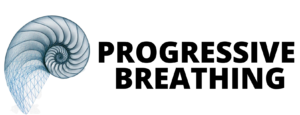The Silent Threat: Understanding the Dangers of Hypoxia & Mouth Breathing
Introduction: In our fast-paced modern world, stress, pollution, and sedentary lifestyles have become ubiquitous. Amidst this chaos, one silent threat often goes unnoticed – hypoxia, or oxygen deprivation. Compounded with the detrimental habit of mouth breathing, hypoxia poses a significant risk to our health and well-being.
The Dangers of Hypoxia: Hypoxia occurs when the body is deprived of adequate oxygen supply. Chronic hypoxia can lead to a myriad of health issues, including cognitive impairment, cardiovascular problems, and even tissue damage. Without sufficient oxygen, cells struggle to perform vital functions, compromising overall health and vitality.
Mouth Breathing: A Compounding Factor: One of the primary culprits exacerbating hypoxia is mouth breathing. Unlike nasal breathing, which filters, warms, and humidifies the air before it enters the lungs, mouth breathing bypasses these essential processes. As a result, oxygen uptake is less efficient, leading to increased susceptibility to hypoxia.
The Consequences of Incorrect Respiration: Beyond its role in hypoxia, mouth breathing has far-reaching consequences for health and well-being. It is associated with sleep disorders, such as snoring and sleep apnea, as well as dental and orthodontic issues. Moreover, mouth respiration can perpetuate a vicious cycle of stress and anxiety, further exacerbating hypoxia and its effects on the body.
Combating Hypoxia: The Role of Nasal Breathing: Fortunately, there is a simple yet powerful solution – nasal breathing. By prioritizing nasal breathing over mouth breathing, we can optimize oxygen uptake, improve respiratory function, and mitigate the risk of hypoxia. Nasal breathing also promotes relaxation, reduces stress levels, and enhances overall well-being.
In today’s fast-paced world, it’s easy to overlook the importance of proper breathing. Yet, as we’ve seen, the consequences of incorrect respiration can be severe. By prioritizing nasal breathing and cultivating awareness of our breathing habits, we can protect ourselves from the silent threat of hypoxia and embrace a healthier, more vibrant life.
Let’s take a stand against hypoxia and mouth breathing. Together, we can breathe easy and reclaim our vitality.
Find more outstanding reasons to Nasal Breathe.
Align Intelligent Movement and Nasal Breathing for Optimal Health.



